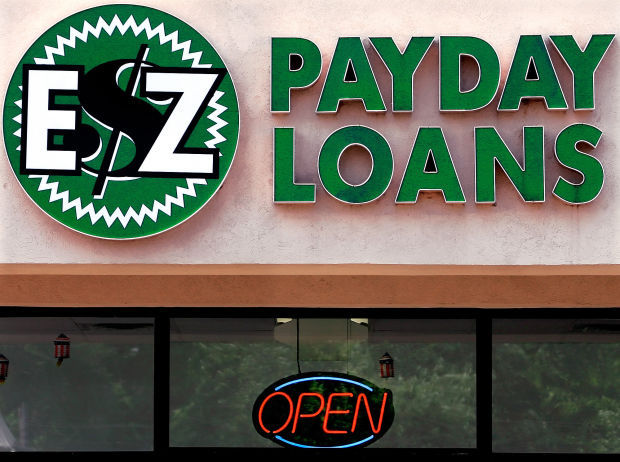ST. LOUIS ŌĆó Voters on Tuesday will decide whether the city should crack down on the short-term lending industry, which includes payday lenders, check cashing stores and car title lenders.
If voters approve Proposition S, short-term lenders would have to pay a $5,000 annual fee in order to operate within the city limits. The proposition would also subject those businesses to a series of new regulations.
The money collected from the fee would pay for inspectors to enforce the new regulations.
Those new rules include a mandate that lenders provide customers with plainly stated information explaining how much the loan will cost with interest and fees. Lenders must also inform their customers of alternatives to short-term loans offered by nonprofits and other organizations.
Violators would be subject to fines of up to $500.
People are also reading…
Cara Spencer, 20th Ward alderman and executive director of the Consumers Council of Missouri, called Proposition S an initial step voters can take to limit the reach of an industry she said is built on the premise of taking advantage of the most desperate people.
Mayor Francis Slay lent his support to the proposition on Twitter, saying it would ŌĆ£discourage predatory lending practices.ŌĆØ
Payday lenders fill a niche in providing loans in amounts smaller than a bank would lend. They thrive when borrowers cannot pay a loan back on time ŌĆö typically two weeks.
When a borrower canŌĆÖt pay the loan back within the two-week period, he or she has the option to renew or roll over the loan, meaning the borrower pays a fee to delay paying back the loan. Other times, borrowers take out a new loan to pay back the first one.
The Consumer Financial Protection Bureau . A CFPB that the majority of payday loans are granted to borrowers who roll over their loans enough times that they end up paying more in fees than the original amount borrowed.
In Missouri, only the state Legislature has authority to regulate the rates and fees short-term lenders charge their customers. That has resulted in one of the nationŌĆÖs most lender-friendly environments.
A Missouri borrower taking out the average payday loan amount of $300 could end up paying a 460 percent annualized interest rate once rollovers are factored in.
In Colorado, however, the same borrower would pay 129 percent. Fifteen states ban payday loans altogether.
Proposition S will not do anything to lower interest rates or limit the number of rollovers allowed on a single loan.
ŌĆ£It allows us to do what we can as a city,ŌĆØ Spencer said. ŌĆ£We are not stepping out of our purview.ŌĆØ
Randy Scherr, a lobbyist and executive director of the United Payday Lenders of Missouri, said his organization has not taken an official position on Proposition S.
Speaking for himself, Scherr called it a ploy to reduce the number of payday lenders in the city.
ŌĆ£What other licensing fees cost $5,000 a year?ŌĆØ he said. ŌĆ£This is clearly an attempt to attack the industry.ŌĆØ
Scherr predicted that borrowers will suffer the most if the proposition is approved as lenders will pass the cost of the annual fee on to their customers.
Scherr defended the industry, noting that short-term lenders are regulated at both the state and federal level while providing a service to people in need of quick cash.













